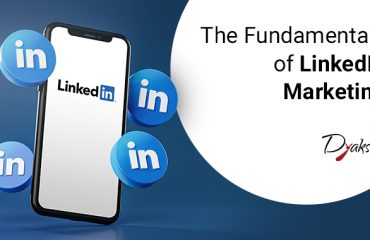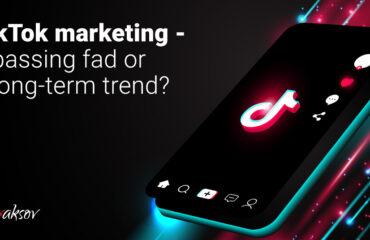The Art of Self-Advertising: How to Suck Up To Yourself
Without any doubt, advertising yourself is one of the finest arts in existence: you need not only finesse, but a knack for diplomacy and strategic thinking too. Multiply the challenging nature of all these elements by two, and you’ll arrive at the rules inherent in both entrepreneurship and personal branding. Everything boils down to a single purpose: you need to make a positive impression as a person (and brand), instead of meddling in an artificial way and getting shunned by your audience. Sometimes there’s a thin line between these two things.
How can you execute the first one, instead getting trapped in the latter? How difficult is it to construct a personal brand? How should you go about it?
Let’s see some focal points of quality self-advertising; one that leads to success and respect, as well as your personal satisfaction.
How to market yourself as a brand
If you think about it, every one of us has their own brand, since every day we promote ourselves on the market called “community”. We first sell ourselves to people, before they purchase our product or service. The price, however, is not in euro, dollars or any other currency. It’s all about a whole other thing – reputation, which measures in fans, followers, likes, shares and impressions. The more popular as a professional or a person you are, the greater the chance for success. You don’t need to aim at being an online celebrity, but you need to realize that everyone has the potential to become the best in their area, even if they don’t make it to the news headlines on a daily basis.
Before you even begin advertising yourself as a brand in your industry, you should think about some things:
• What do you think sets you apart from the rest? What are your skills, interests, things that you don’t do in an average way, but rather skillfully?
• How do the people around you see you? If someone were to fetch a survey with their opinion, which of your qualities would rank up there first?
• What are your goals? What do you want to achieve, in what time-frame, using what kind of methods?
• What is your audience? What messages do they expect of you to convey? What problems do they face in their daily life – and how would they wish for you to solve them?
These are the four “pillars” you should reflect on before revving up the self-advertising engine. Once you make a mistake in setting them up, you can easily risk your authority and success. Think about it: if we put a conservative business consultant in an advertising agency that requires of him offbeat, unconventional and creative solutions, the result would be rather poor, right? Don’t create such a situation for yourself.
It’s similar to when you’re looking for your significant other. After you choose your potential love interest, you need to figure out your presentation (clothes, appearance, accessories), approach, words, whether you’ll match at all (or your love interest already has a partner), etc. After all, if you cannot meet the expectations of your audience (or our specific love interest), then it’s going to be highly unlikely for you to succeed.
Some delicate elements when promoting your brand in social media
Let’s make something clear: if you want to build a strong personal brand, you cannot skip on social media. Not in modern times, the golden era of social media marketing.
Facebook and Twitter are surely well-known to you, but it might be a good idea to expand your social network portfolio. Dig deeper in platforms such as Instagram, LinkedIn, Google+…why not Pinterest too. For the developers out there, GitHub is invaluable, while designers have Behance and Dribbble.
The first thing you should remember is the simple fact that your personal information across all platforms should be the same. Contact details, names, website…they should follow the same template everywhere. Every one of us has their own brand, since every day we promote ourselves on the market called “community”. Short, concise, clear – and professional.
The second element is your image’s “theme”. After you have come up with marketing yourself as a specific brand (those four “pillars”), follow the path you’ve chosen on social media. Your Facebook and Twitter profile shouldn’t be in stark contrast with the image you want to broadcast to your audience. Instagram is the perfect way to “furnish” your brand with fitting visualizations to reinforce it further: photos, short videos, images with relevant quotes…
You should also be consecutive in your social media presence, as this makes a lasting impression. If you manage to build the proper anticipation towards your online persona, you’ll reap marvelous results. However, if you confuse your followers with chaotic, contrasting messages, people won’t take you seriously and your image as a specialist will suffer.
LinkedIn and Facebook are a good environment to network a bit, joining the various niche groups and communities. Not only will you be able to nurture important and beneficial discussions with other experts from your industry, but you will gain precious “visibility” and build your authority.
Social causes and their importance for advertising yourself successfully
One look at some of the more popular personal brands in the West, and you will notice how many of them are actually involved in volunteer initiatives and causes. The truth is, social causes of any type (volunteering, NGO activity, citizen initiatives and movements) are integral to building a strong personal brand.
What’s one of the first things that crosses your mind when mentioning Angelina Jolie? (Aside from the fact that she continues to be one of the sexiest women on Earth?) Surely you will rank highly her participation in a string of humanitarian initiatives lead by the UN.
Similar to the situation with social media, though, you have to be careful with the messages you’re sending to your audience. Social activity is best kept to initiatives and organizations that complement your brand, instead of contrasting it in any way.
Of course, some take a shot at causing an uproar with a public scandal. While such a vocal trick in the self-advertising niche, scandals are not always the optimal approach to spreading your personal brand. The reason? The starkly negative community-driven reactions might cost you a lot, including heavy psychological pressure.
There will always be a person that is able to stir up a more shocking scandal than you. However, the deliberate, devoted participation in volunteer projects and NGOs is a way better long-term investment – both for you and the society we live in.
Is it hard to be acknowledged as an expert in your niche?
In short: no, not at all. But this answer demands three prerequisites. First, you should know the ins and outs of whatever you decided to base your personal brand on. Second, you should be ready to be a part of many events and be comfortable with speaking in front of an audience. Third, you should possess great presentation skills. You have to present your topic in an interactive, attention-grabbing way. Contact with the audience should be ever-present, as should your non-verbal communication too.
Proving yourself as a niche specialist won’t happen overnight. It won’t happen over the course of a month or two either. It’s good to keep that in mind and to approach winning the respect and trust of others as a long and complicated process that is however not unpleasant in any way.
Some of the more popular formats during the course of which you can prove your skills are:
• Presentations
• Training/Coaching (both ones where you are physically present, or online video lessons)
• Seminars
• Lectures
• Panel participation as a part of an important industry-related event
It might sound too draining, but this is the most effective and inspiring respect way to show your audience you have the knowledge and skills. What’s even better is that such events are a very viable environment for establishing important business networking practices. You might get a new fan of your personal brand, or better yet – a client.
As I already mentioned, the art of advertising yourself is a fine, frail one: you need punctuality, self-initiative, and diplomacy. The good news, however, is that the single most difficult moment in getting your personal brand out there is the beginning. From there on, once you gain momentum, your brand is one smooth (albeit demanding) journey. The coziness of the cliché “just be yourself” is a wonderful feeling. However, the feeling of turning this comfort into your business and branding yourself successfully is something that brings even greater satisfaction.






